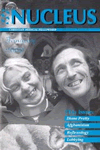There is little clinical information given but the man's paralysis could have been caused by any one of a great number of diseases. We aren't told how long he had been unwell and can't tell whether his paralysis was congenital or acquired. However, the lack of any specified associated symptoms may be significant. He was able to understand Jesus' spoken instructions, and as no mention of mental deficiency is made it is possible to suggest that he was cognitively intact. Equally, no mention is made of an event that caused the paralysis. It may not have been possible for his friends to gather around him and get him to his feet, as here they are forced to adopt more dramatic methods. It seems probable that he was moderately to severely physically handicapped. We certainly know that he was unable to walk unaided at the time of his healing.
There are many acquired illnesses that cause paralysis, most of them neurological. Sufficient trauma to the back can cause vertebral fracture and slice the spinal cord; this can be fatal or result in para- or quadriplegia. Birth asphyxia and severe head injury can also leave people severely physically disabled (eg cerebral palsy) and often with mental handicap too. Atraumatic causes of paralysis include spinal cord compression from tumours, syringomyelia and bone disease. Central causes include strokes, multiple sclerosis, tumours and abcesses; these cause hemiplegias and can be associated with other symptoms such as visual problems. Infections such as polio are important causes.
There are a number of congenital causes to consider. Again these include the neurological, such as cerebral palsy and spina bifida, but also the skeletal, such as muscular dystrophy or congenital limb deformities.
On the balance of probabilities Luke is going to opt for an acquired neurological cause for the paralysis, such as polio.
But the thrust of the passage is not merely medical. When Jesus saw this man he came up with a crucial spot diagnosis: sin. This was the man's major problem, not his physical state. We often focus on the physical disease and ignore the spiritual pathology, but Jesus healed both. His model of whole-person medicine is an excellent one that has been featured in Nucleus before. As Christians doctors we can, and must, minister to both the physical and spiritual needs of our patients.































